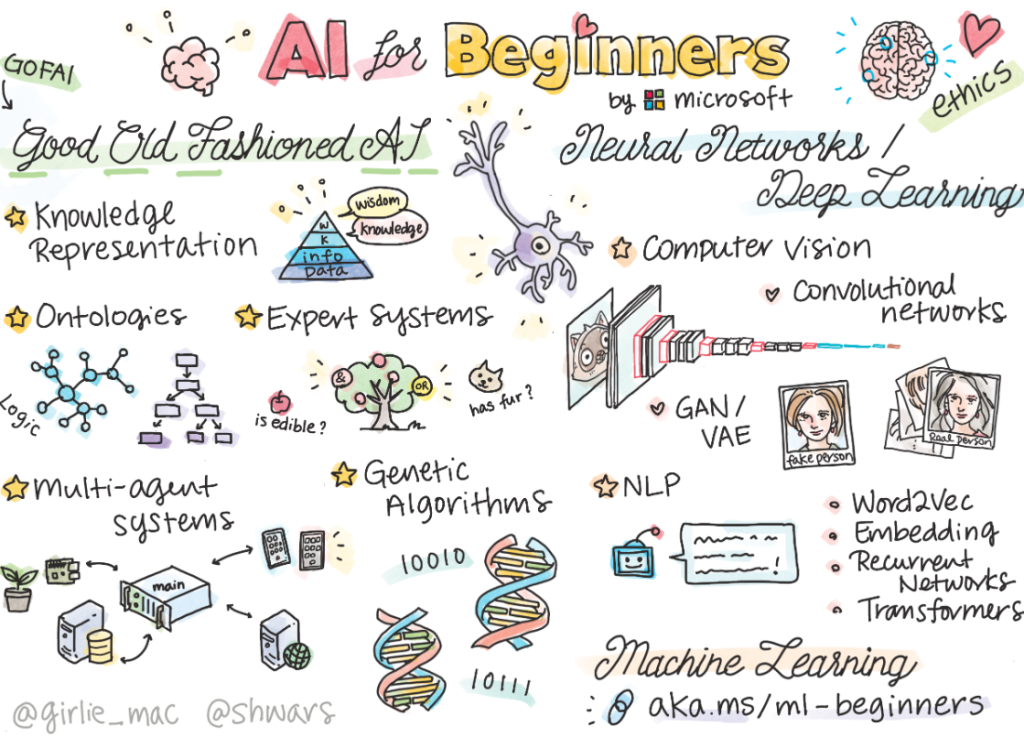
Artificial Intelligence (AI) is a fascinating field that has gained significant traction in recent years. For beginners looking to dive into AI, navigating the plethora of resources and learning paths can be daunting. In this guide, we’ll address common questions beginners have about starting with AI and provide comprehensive solutions along with recommended resources.
Question 1: How to start learning AI?
Solution: Embarking on the journey of learning AI can be exhilarating, but knowing where to begin is essential. Here’s a step-by-step approach to kickstart your AI learning journey:
- Start with Machine Learning: Machine Learning (ML) is a foundational concept in AI. Begin by understanding ML algorithms and techniques. Here are some recommended resources:
- Courses: Enroll in online courses like CS229: Machine Learning by Stanford University or AI Programming with Python Nanodegree on Udacity.
- Books: Dive into “Deep Learning” by Ian Goodfellow, Yoshua Bengio, and Aaron Courville, a comprehensive guide to deep learning concepts.
- Tutorials: Explore Python tutorials on artificial intelligence on platforms like Tutorialspoint.
- Explore Deep Learning: Deep Learning is a subset of ML that focuses on neural networks. Once you grasp ML fundamentals, delve into deep learning concepts:
- Resources: Refer to tutorials and guides provided by DeepLearning.net, Guru99, and DataCamp.
- Books: Deepen your understanding with resources like the Deep Learning book by Ian Goodfellow, Yoshua Bengio, and Aaron Courville.
- Practical Implementation: Apply your knowledge through hands-on projects and exercises. Platforms like Kaggle offer datasets and competitions to practice ML and deep learning skills.
- Stay Updated: Follow AI research publications, blogs, and communities to stay abreast of the latest developments in the field.
Question 2: How should I start with learning math required for AI?
Solution: Mathematics forms the backbone of AI, and understanding mathematical concepts is crucial. Here’s how you can begin:
- Foundation in Mathematics: Build a strong foundation in mathematics, including linear algebra, calculus, and probability theory.
- Online Courses and Resources: Utilize online platforms like Khan Academy and Coursera to access courses on mathematics and AI. Recommended courses include:
- Machine Learning Course on Coursera: Taught by Stanford Professor Andrew Ng, this course covers essential mathematical concepts used in ML.
- AI-Class: Offered by Stanford University, this course provides a comprehensive overview of AI concepts.
- Practice and Application: Reinforce your learning by solving mathematical problems and applying concepts to AI-related projects.
- Community Engagement: Join online forums and communities to interact with peers and experts, seek guidance, and share knowledge.
Question 3: Training an AI algorithm to learn new features
Solution: As you advance in your AI journey, you’ll encounter challenges like training AI algorithms to adapt to new features. Here’s how to approach it:
- Online vs. Offline Learning: Understand the difference between online and offline learning. Online learning involves updating the model with new data sequentially, while offline learning trains the model on the entire dataset at once.
- Reinforcement Learning (RL): Explore RL techniques, where an agent learns to make decisions in an environment to maximize rewards. Deep reinforcement learning combines RL with deep learning, making it suitable for AI applications.
- Stay Updated: Keep abreast of advancements in AI and RL algorithms by referring to research papers, tutorials, and online courses.
- Practical Application: Implement RL algorithms in real-world scenarios, such as stock market prediction or game playing, to understand their efficacy and challenges.
Starting with AI requires dedication, continuous learning, and practical application. By following structured learning paths, leveraging online resources, and engaging with the AI community, beginners can embark on a rewarding journey into the realm of artificial intelligence. Remember, patience and persistence are key as you navigate through the intricacies of AI.